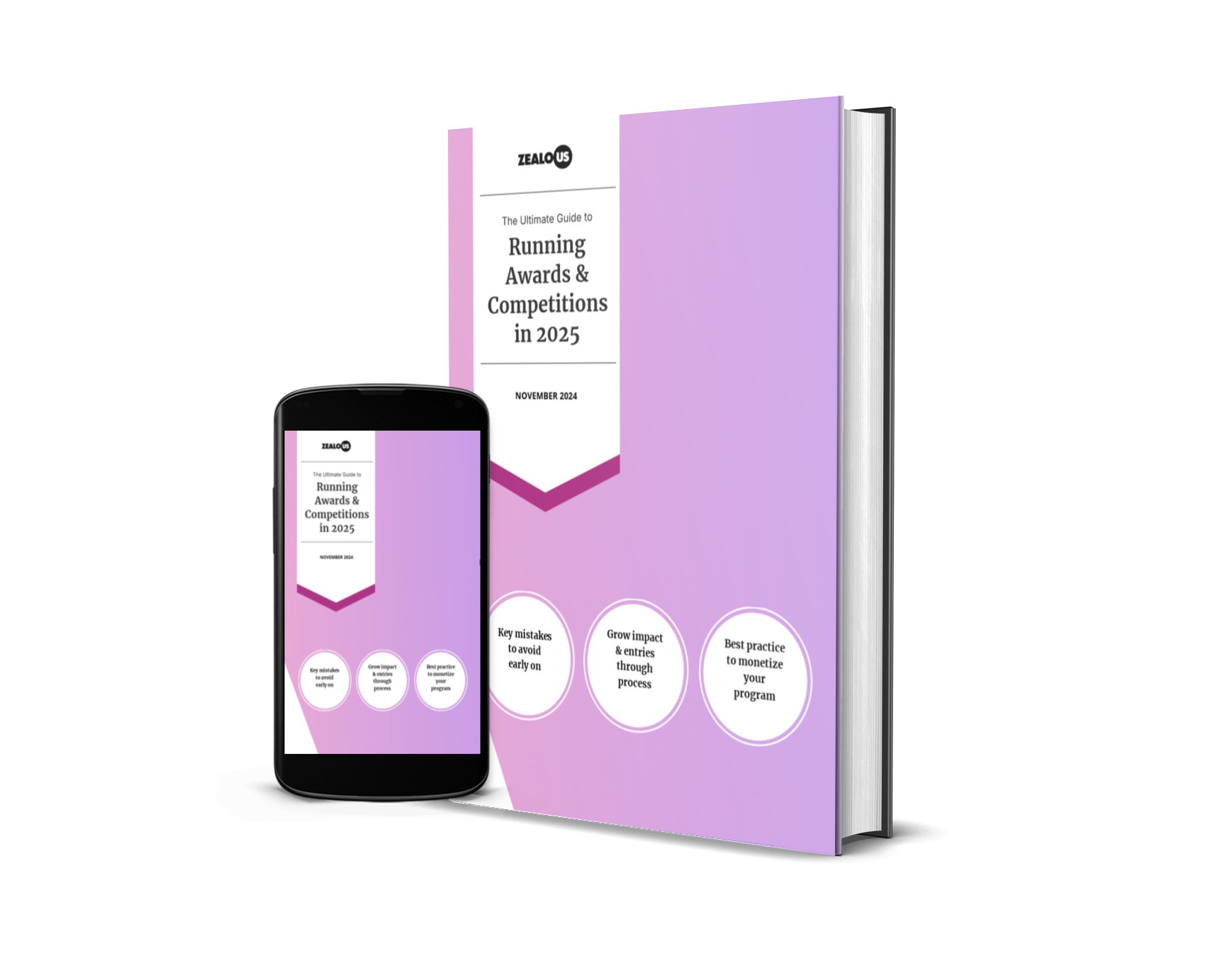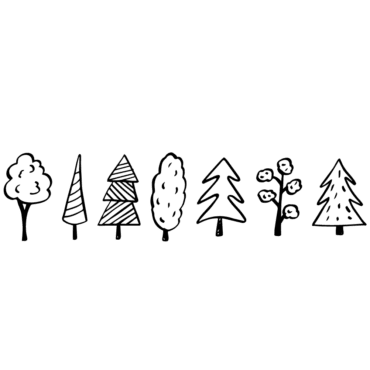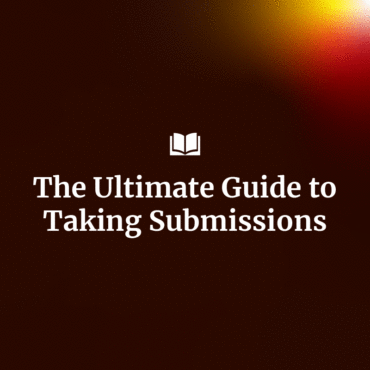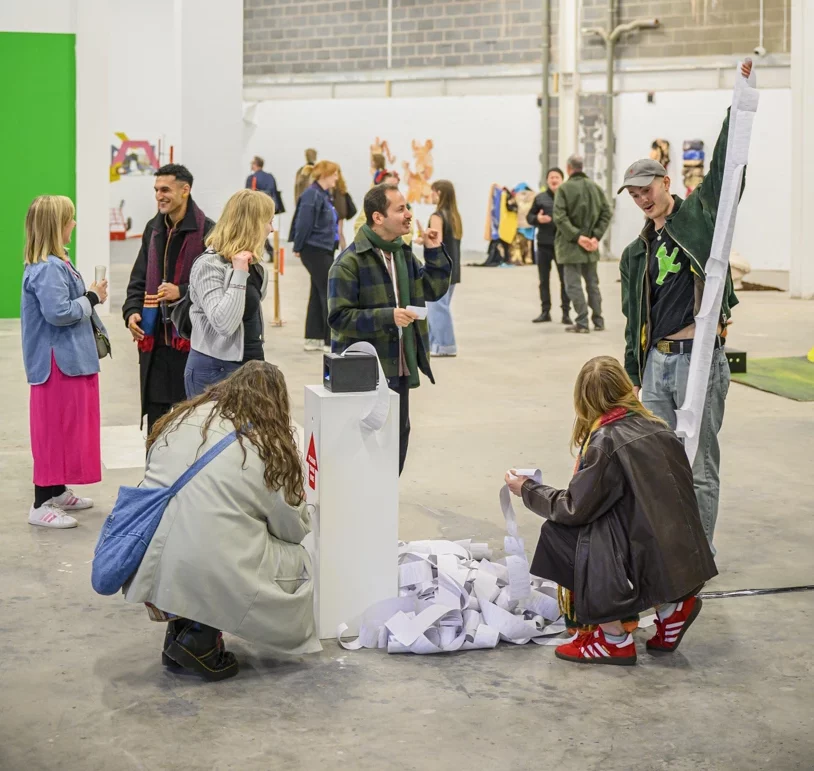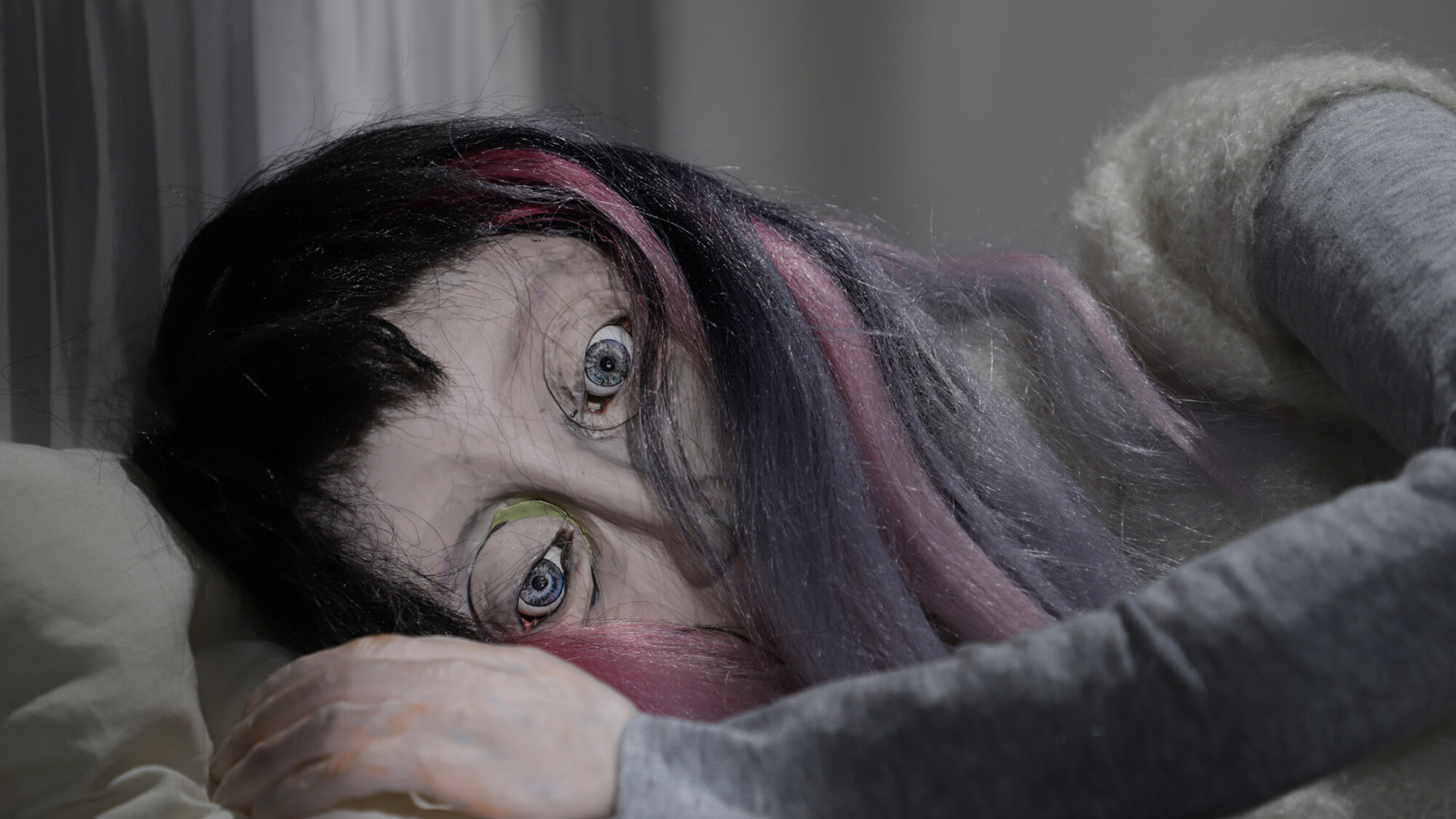
Congratulations on winning Zealous Stories Animation! Your work is focused on the construction of poetic narratives and psychological self-portraits. Do you favour animation as a medium to explore these themes?
Thank you! My background is in visual art, and until recently I worked with a variety of media including drawing, installation and ceramic sculpture before concentrating almost exclusively on animation now. The object-based work explored similar themes, and my recent films are a continuation of that. I do feel that animation is a better medium for navigating narrative and creating a more fleshed-out vision, because of how it combines sound, image, voice and time to build atmospheric worlds. Audiences are cinematically immersed, yet do not expect realism from animation, and are attuned to the metaphorical symbolism of the image and story.
Could you give us a synopsis of your winning work, Shadow Passage?
Shadow Passage is a stop-motion film about a woman exploring her own psyche through its manifestation as a sequence of identical yet progressively smaller rooms, inhabited by multiple selves. Three differently sized puppet versions of the same character reside in adjacent, starkly furnished bedrooms. Spurred by the chaos of her anxious thoughts, the first puppet journeys through the rooms and meets more delicate and wounded aspects of herself.
I noticed the reoccurring motif of the clock; what significance does time carry within this plot?
Clocks are present in the first room, in which the inner critic is dominant, along with the anxiety it provokes. A lot of my stress and worry is related to time – I’m a terrible procrastinator so I often feel I’m running out of time; I’m also older than most of my peers in the animation scene, especially in the programme at the RCA where I made the film, and so I was questioning the choices I’d made that led me to taking this path so late, and feeling like time was passing too quickly and I couldn’t keep up. That anxiety can in some ways be motivating, but the barrage of negative thoughts can also overwhelm me, which leads to tears and self-pity, which is shown in the second room.
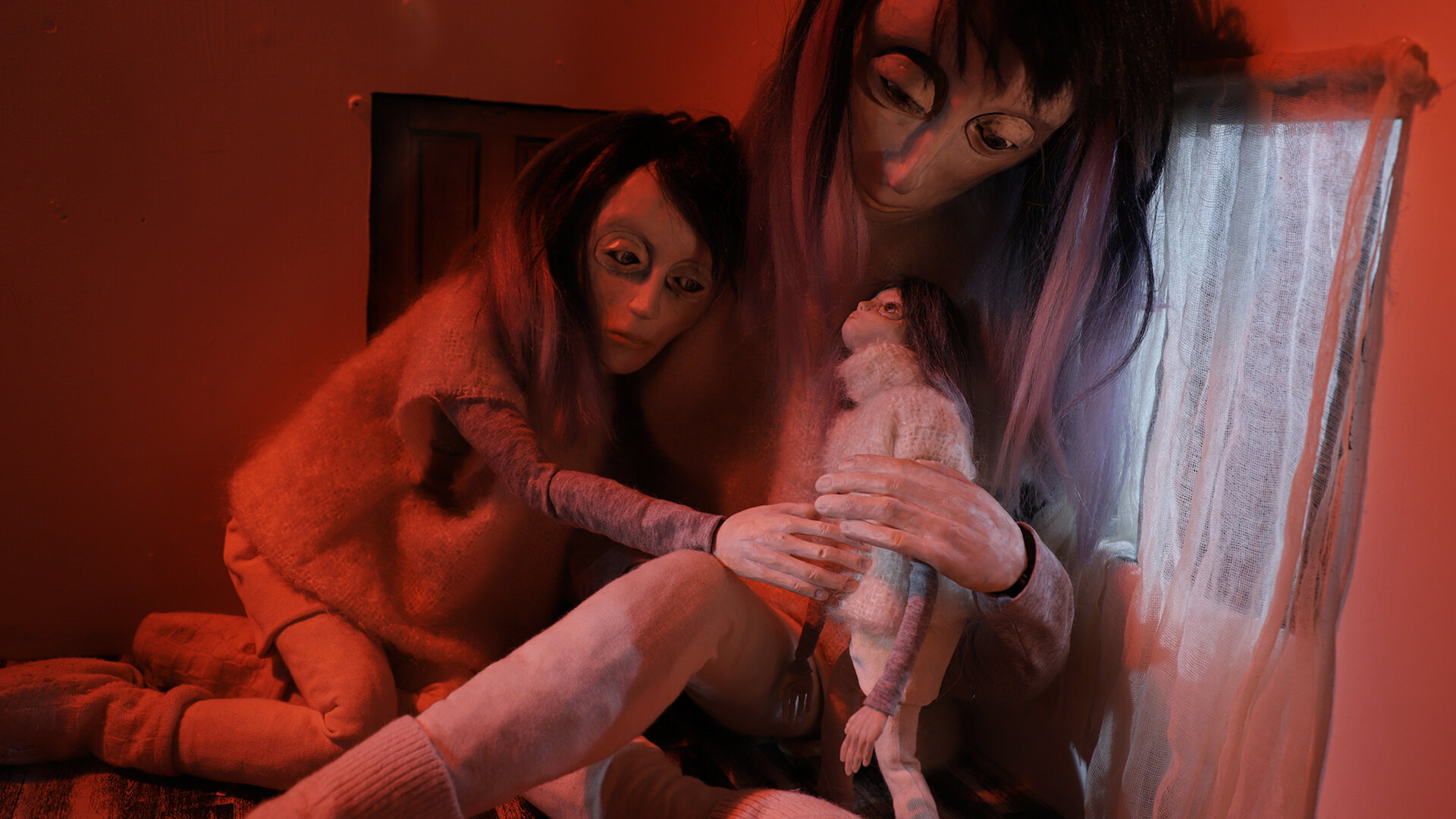
Could you give us some insight into the production process? How long does a project like this take to execute?
This was my graduation project for my MA, so I had 8 months to make it, from conception to completion. As I mentioned earlier, I’m an awful procrastinator, and was also suffering from fairly intense anxiety, so it took some time to get it off the ground. I think I spent the first 4 or 5 months researching, drawing, writing and thinking, distracting myself with other small projects, gathering and playing with materials and haphazardly building and rebuilding the set as I figured out what I could reasonably fit in the studio.
The animation itself took about 3 months, though I was still figuring out what exactly was going to happen in the film as I went along. It was largely improvised as I shot it. I worked with my sound team right from the beginning, so the soundtrack developed alongside the visuals and helped construct the work holistically.
Could you give us some insight into the production process? How long does a project like this take to execute?
This was my graduation project for my MA, so I had 8 months to make it, from conception to completion. As I mentioned earlier, I’m an awful procrastinator, and was also suffering from fairly intense anxiety, so it took some time to get it off the ground. I think I spent the first 4 or 5 months researching, drawing, writing and thinking, distracting myself with other small projects, gathering and playing with materials and haphazardly building and rebuilding the set as I figured out what I could reasonably fit in the studio.
The animation itself took about 3 months, though I was still figuring out what exactly was going to happen in the film as I went along. It was largely improvised as I shot it. I worked with my sound team right from the beginning, so the soundtrack developed alongside the visuals and helped construct the work holistically.
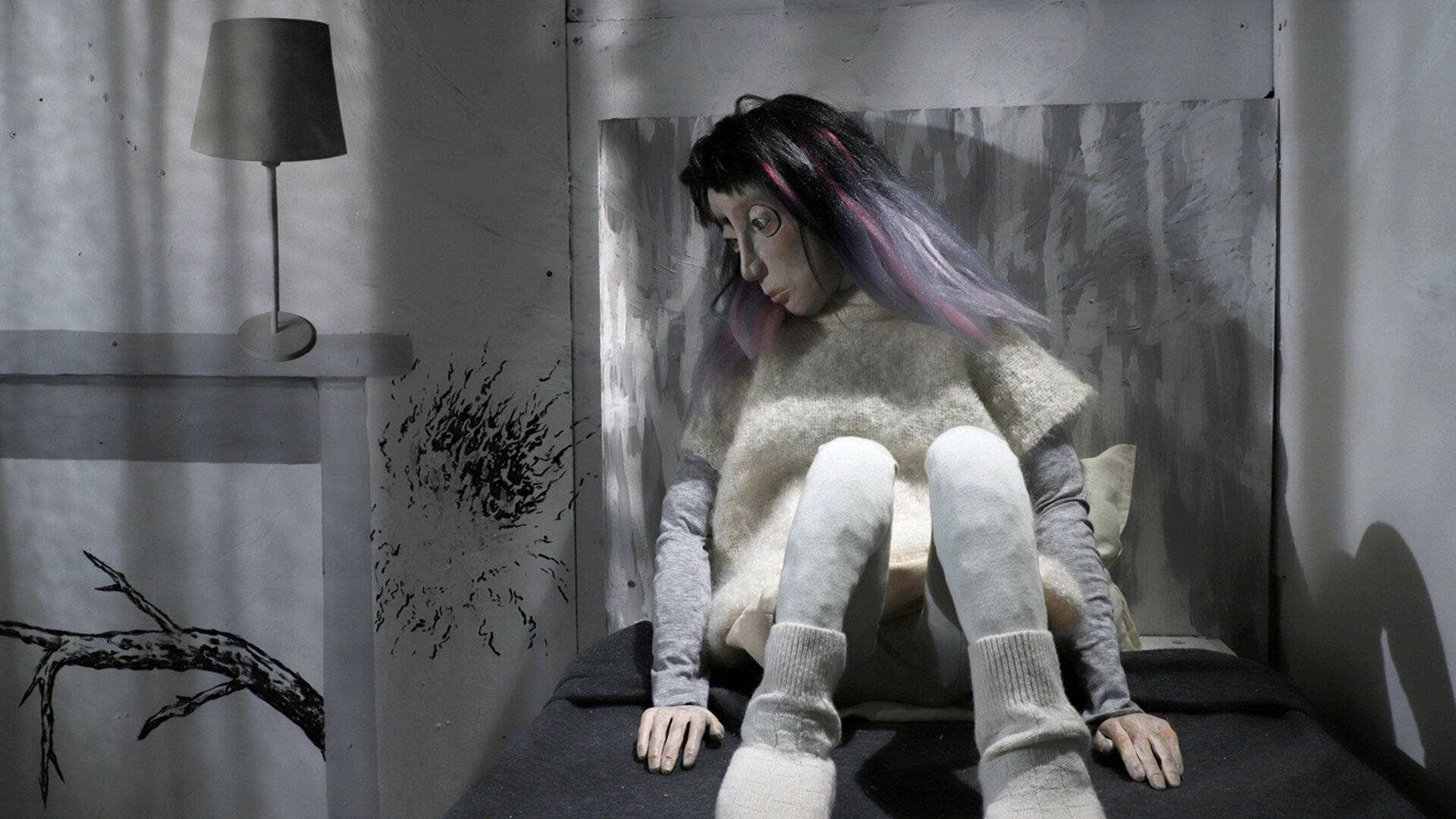
How have you stayed creative during the lockdown period? What have been the main challenges you have faced as an animator?
Sigh… I wish I had a good answer for this, but to be brutally honest, I have not really stayed creative. During the first lockdown, I lost my day job and both prospective freelance projects I had lined up. I watched lots of film festivals online which was inspiring and heartbreaking at the same time, I joined a project by 12ø collective to make a small piece of work everyday for a month, which was helpful to keep the despair at bay for a little while, and I made a comic I’m really proud of for Rescue Party, but then I kind of ran out of steam, and it had only been two months.
Eventually I got a commission to make a music video which was a fantastic project and kept me busy for quite a while, but I still struggled to keep myself on schedule when I had no structure in place around me, and nothing lined up to follow it. This is just a reality of freelancing, but it was exacerbated by the surrounding global crisis, and more specifically the loss of income.
I know it’s not very encouraging to hear this, but I think it’s important to be open about the fact that being an artist is really hard, and there’s simply not enough support considering how many of us there are. Sometimes the only way to overcome the challenge is just to step away from it, give yourself a break, and wait for it to go away.
What’s next for you?
The aforementioned music video will hopefully be released sometime soon, and with any luck that will lead to another opportunity. I’m in the very early stages of getting involved in an independent feature animation project, written by a friend of mine, but it’s too soon to say any more than that. I’ve had a couple of grand ideas for short films I want to make myself, but I realised I’m actually too exhausted to do them right now, so when I can, I’ll focus on some small little experiments instead, just to keep my hand in the game and have some fun without the pressure to produce something ground-breaking. Our culture’s focus on constant productivity is really toxic.
Let us know you want us to write more content like this with a love!
Share
Authors

